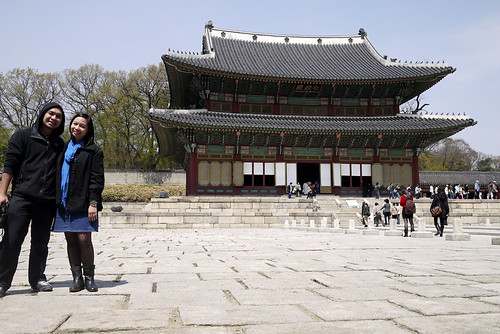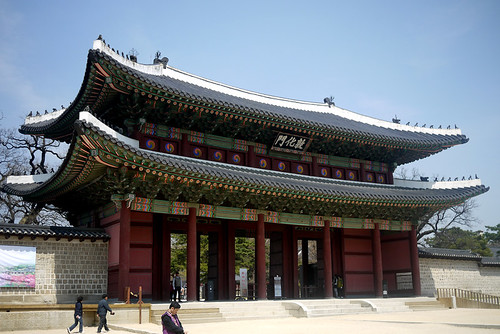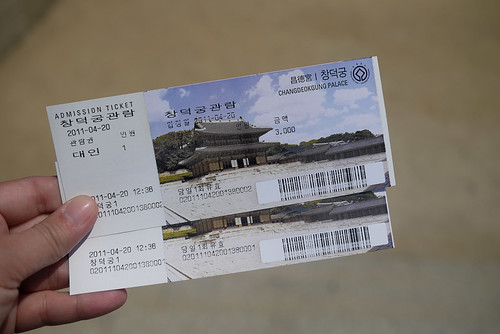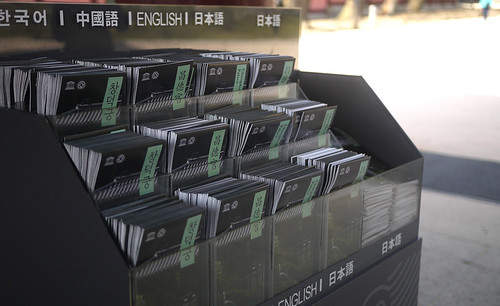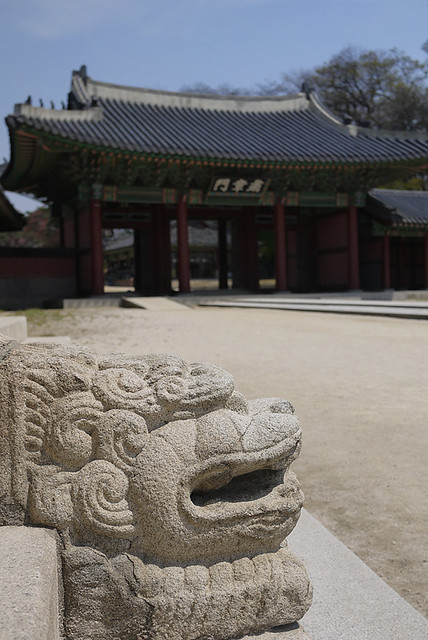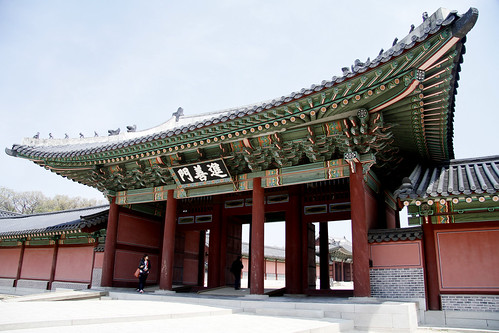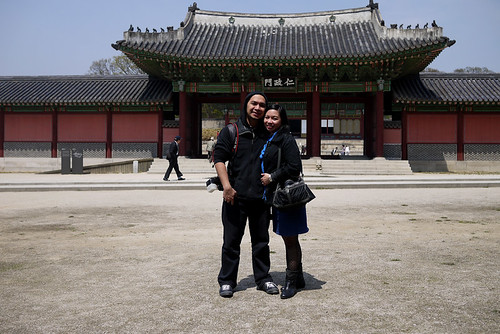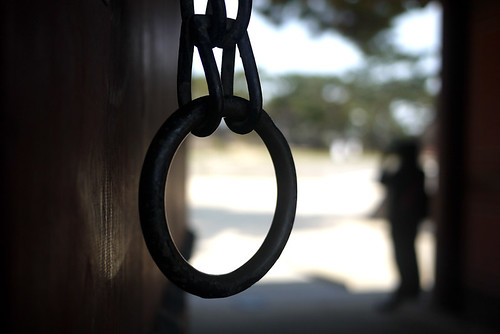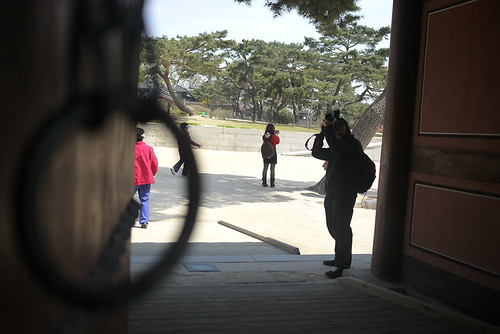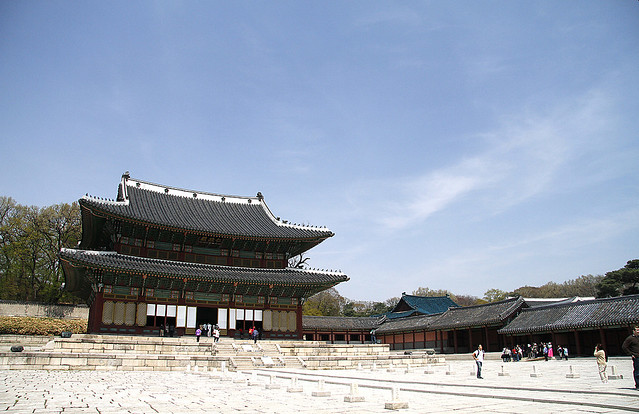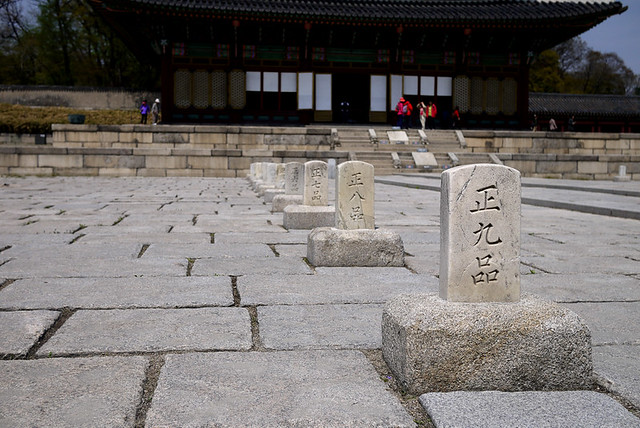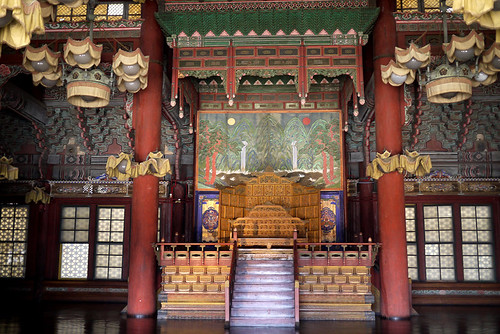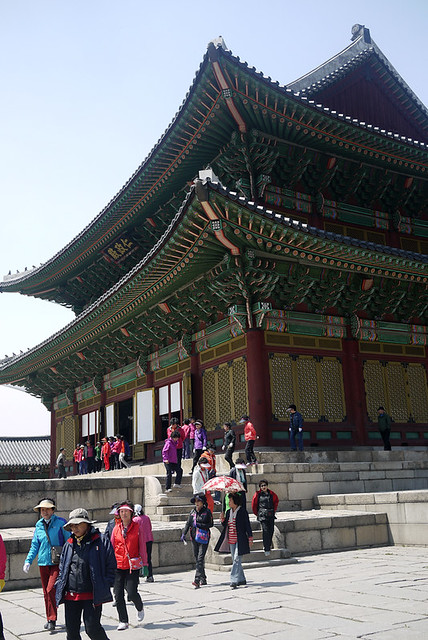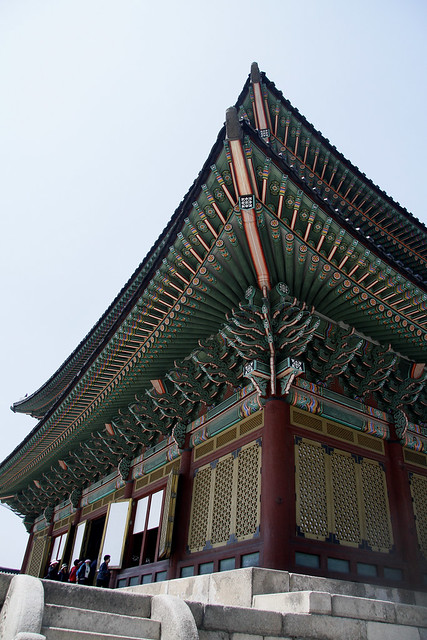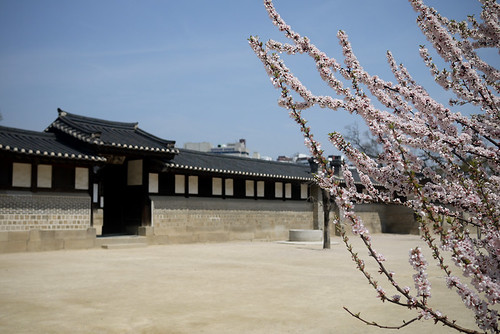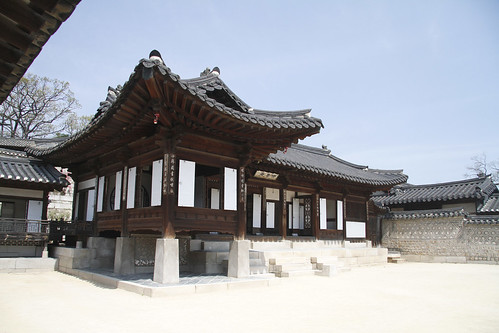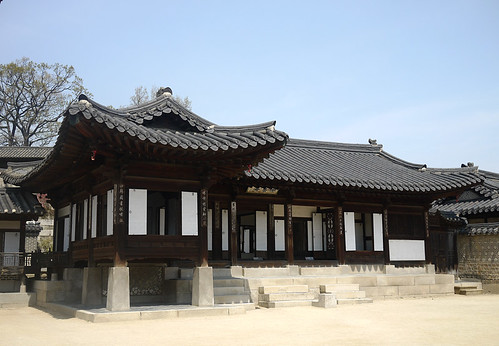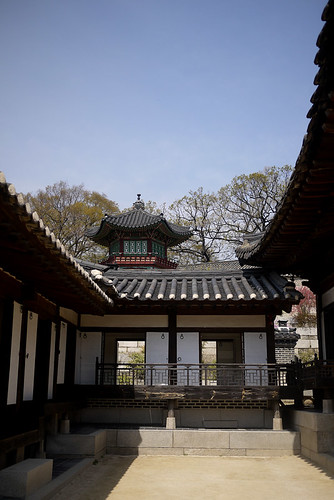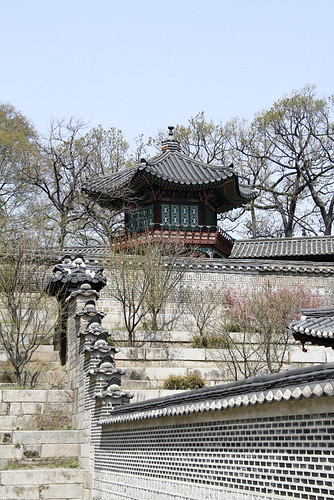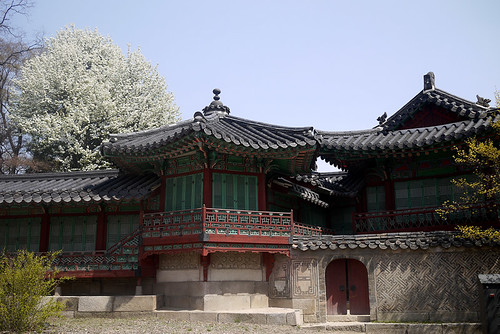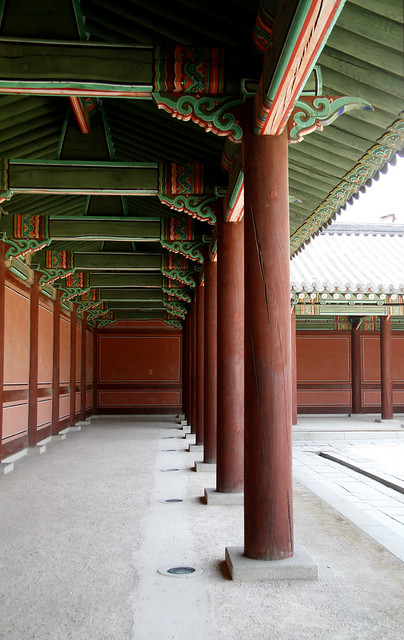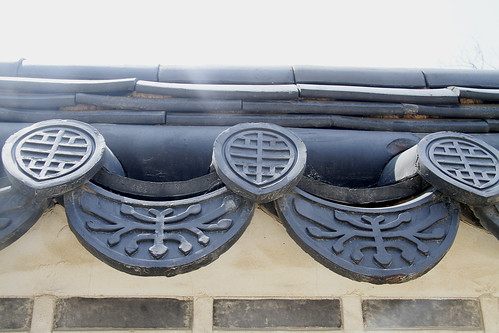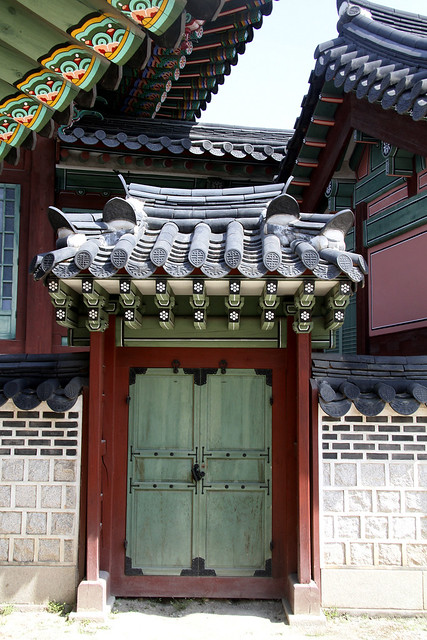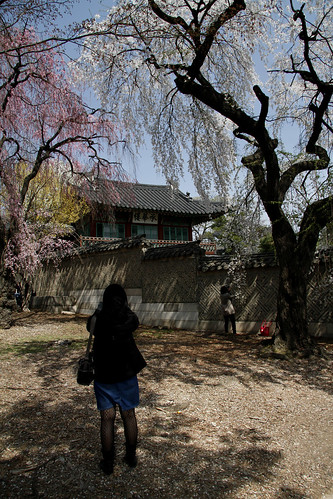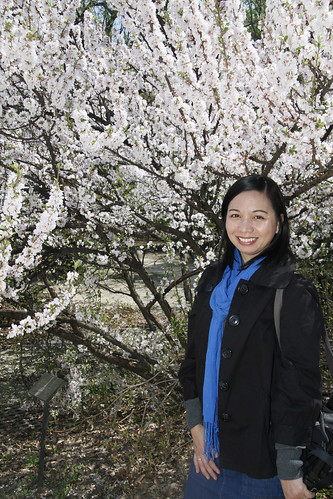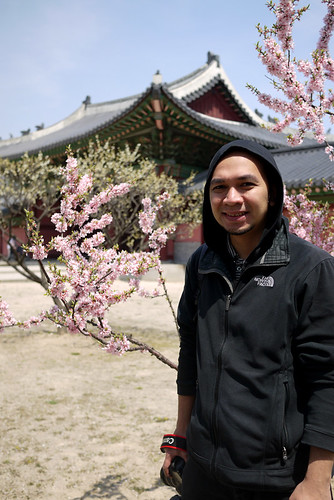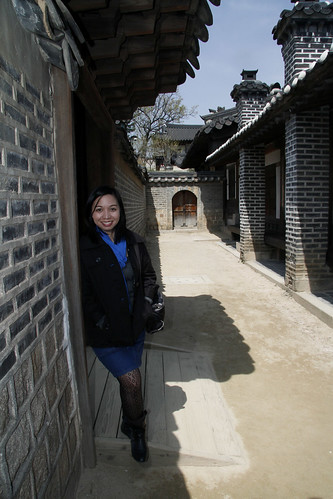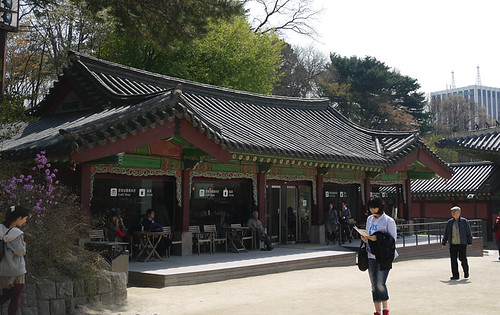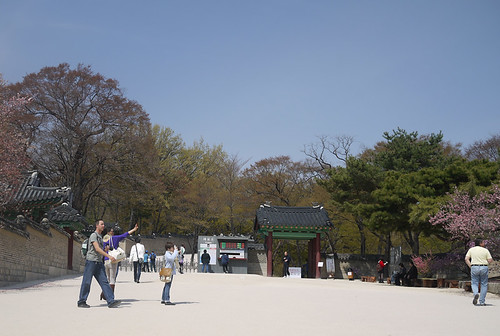This week's Wanderlust Wednesdays entry will be more on photos I would like to share with you. One of the things my Husband and I love about traveling is that we get to capture photographs. Whenever we plan our travels, we allot time to explore the place and also set aside time to take photographs. For example, if we're given just an hour of exploring a certain place, we'd set aside 15 minutes of that hour exclusively taking photographs. Sometimes we'd even split up and go where our interest heeds us because we have different fortes when it comes to photography. When we re-group, we share back with each other the photographs we took and it's nice that way because we get to share different perspectives--we never have the same photographs!
Changdeok Palace
There are Five Grand Palaces in Seoul and Changdeok Palace is the first we have seen.Construction of Changdeok Palace (historic site #122) was started in 1405 by King T'aejong, and it was completed in 1412. In 1463, King Sejo expanded the palace and created Biwon (secret) Garden. The Japanese burned all the buildings during 1592. Although rebuilt, many of the buildings have burned and been rebuilt several times. Thirteen of Korea's kings lived here for a total of over 270 years, a longer period than at Gyeongbok Palace. The palace grounds cover over 110 acres. Thirteen of the original buildings remain, with an additional 28 in Biwon Garden.
The main gate to Changdeok Palace is Tonhwamun (National Treasure #383) which is similar to Honghwamun gate in Changgyeong Palace. Built in 1412, it was destroyed in 1592 during the Japanese invasion. Rebuilt in 1607, it is Seoul's oldest 20story wooden gate.
Admission fee for an adult is 3,000won ($3.00).
Be sure to grab a map on your way in.
Before we entered the first palace, a man was very kind enough to approach us and took a photo of us. So we gave him one of our cameras and let him.
And then we were left to our own devices. We brought a little tripod with us and we've had a couple of photos together (like the first photo above).
An exercise in focusing. I love this first photo because...
...the man I used as a bokeh was my Husband who was busy taking photographs.
Injeong-jeon is the throne hall, which was used used for holding the most formal of state events such as audiences with ministers, coronation ceremonies, and receptions of foreign envoys. The plum blossom pattern on the roof ridge was added in 1897 to symbolize the imperial status of the Great Han Empire.
The Husband's forte are the landscape and wide shots
On the other hand, I love capturing detailed and macro shots
No one was allowed to enter the Injeong-jeon but one can have a look from the outside.
The hall where the King sits.
The colourful details of the Injeong-jeon fascinated me. I especially loved the roof details.
Nakseon-jae and Seokbok-heon were one of the simplest structures in Changdeok Palace but was accompanied by a rich story. The Nakseon-jae and Seokbok-heon reveals the deep love that King Heonjong had for Lady Kim, who became his concubine in 1847. He ordered this villa to be built for her. The King was deeply interested in art, and this compound served as a private space where he could relax by reading books or appreciate paintings.
Seokbok-heon means "house where blessings are bestowed from Heaven". It expressed the King's wish for her young concubine to bear him a son. Unfortunately, King Heonjeong died without an heir to the throne.
His perspective...
...versus my perspective
We weren't allowed to go inside the rooms of each villa (how we wished we could!) so again, only from the outside did we get to take photographs.
There were a lot more villas inside Changdeok Palace and it may take you from an hour to two hours in order to explore the whole place. Had we availed of the tour being offered to tourists, we would have learned more about each villa. However, we were happy nonetheless to have a feel of "old Korea" and see the beautiful architecture of their palace.
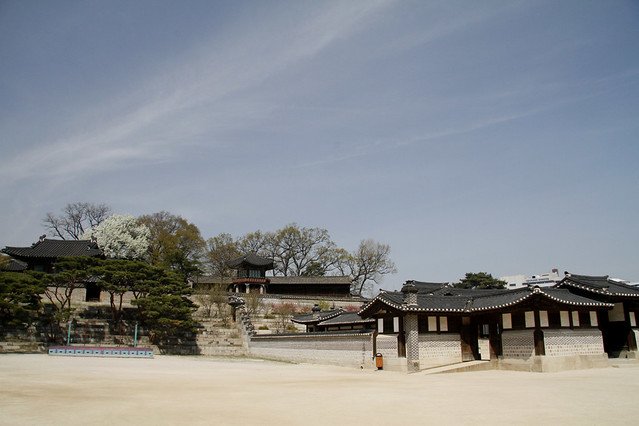
It's all about the details and how they were able to take care of these structures.
We overheard from one of the tourist groups (yes, we followed them and pretended we were part of the group hehe) that engravings on this roof tiles symbolize the Male (on top) and Female (below).
This was just a little door and look how intricate the designs were.
We saw two types of Cherry Blossoms here (how lucky we were!), pink and white.
Me with the white Cherry Blossoms.
The Husband with the Pink Cherry Blossoms.
Every nook and cranny is worthy of a photoshoot.
They have a nice souvenir shop and cafe where you can sit for a while and rest. The Changdeok Palace is huge and a lot of walking is involved in order to go around the place. What my Husband and I did in order for us not to get tired (we still had a long day and a lot of walking ahead of us), we rested in the shop in the middle of our exploring. While in the shop, we also bought a few gifts to give to loved ones and lots of post cards.
The Biwon Garden is originally named Huwon, (meaning "rear garden"), Biwon is typical of palace backyards where kings and other members of the royal family would go to relax and entertain. In 1997, it was registered as a World Heritage. To enter the Biwon Garden, one must pay extra and there are schedules you have to follow. We didn't go in the Biwon Garden anymore because we have two places to go to later that day.
Feb. - 09:15 ~ 15:45 Enter every 15 and 45 minutes past the hour.
Mar. - 09:15 ~ 16:45 Enter every 15 and 45 minutes past the hour.
Apr. ~ Oct. - 09:15 ~ 17:15 Enter every 15 and 45 minutes past the hour.
Nov. - 09:15 ~ 15:45 Enter every 15 and 45 minutes past the hour.
Dec. ~ Jan. - 09:45 ~ 15:45 Enter every 45 minutes past the hour.
* The last entrance time varies according to sunset time.
Closed Mondays
Biwon Garden
3 times per day: 10 AM, 1 PM, 2 PM; takes 3 hours (closed on Mondays)
Admission
Adults (19 to 64 years old): 3,000 won
